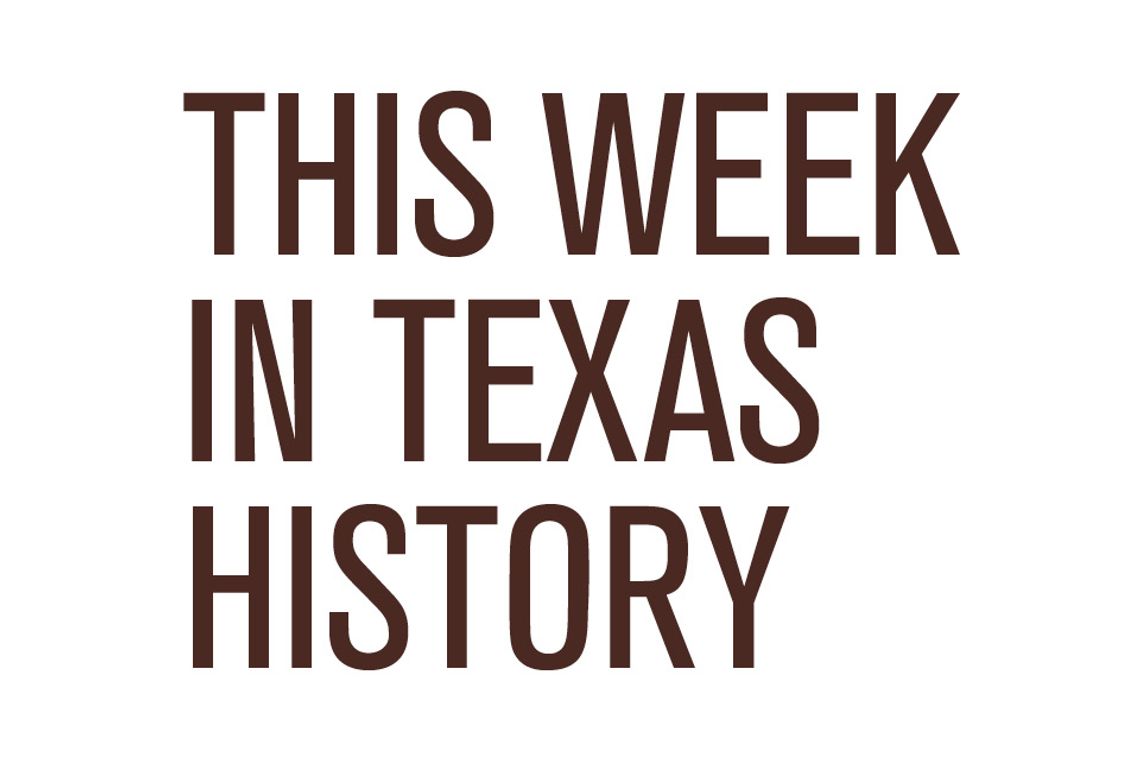By Bartee Haile
On Dec. 30, 1847, eleven years after the death of Stephen F. Austin, the Father of Texas’ right-hand man opened the first real bank in independent Texas.
Samuel May Williams came from a distinguished Rhode Island clan that took root in New England a century before his birth in 1795. A long list of illustrious ancestors included a signer of the Declaration of Independence and a president of Yale College.
Leaving home at the age of 20, the young wanderer wound up in New Orleans. During his seven-year stay in the Crescent City, he picked up enough French and Spanish to become fluent in both tongues.
Williams’ language skills landed him a job as an interpreter right after his arrival in Texas in the spring of 1822. He soon met Austin, two years his senior at 29, and in 1824 accepted an offer of employment from the colonizer.
Assuming a multitude of varied and demanding responsibilities, Williams evolved into the empressario’s indispensable right-hand man. Although his formal titles were restricted to official secretary and public recorder of the Anglo-American settlement, there was no limit to his actual duties. He did whatever had to be done, which regularly meant running the contentious colony during Austin’s prolonged absences.
The position was anything but cushy. Williams’ headquarters, the land office at San Felipe de Austin, was a ramshackle structure that provided minimal shelter against the whimsical weather. The sum total of furniture was two chairs and a whiskey barrel converted into a desk.
Essential supplies were extremely scarce in the primitive province. Williams had to send off to Louisiana for a log to record land transactions, a routine request that took six months.
Austin was an exceptionally private person, who rarely confided in anybody. But his assistant gradually earned his trust and in time became his closest if not only true friend.
By 1834 the colony was a thriving community, and Williams finally felt free to pursue more personal goals after a decade of dedicated service. Austin grudgingly accepted the fact that his able aide needed to get on with his life, and the pair parted on amicable terms.
However, in a matter of months, the ex-employee managed to besmirch the reputation his mentor had labored so long to keep above reproach. Williams engaged in land speculations which, though technically legal, provoked harsh criticism from many colonists who jumped to the unfounded conclusion that Austin was involved in the shady deals.
The resultant rift wrecked the relationship both men treasured. For two years they did not exchange a single word.
In August 1836, four months after the Battle of San Jacinto, Williams broke the awkward silence. “I am informed that you charge me with a want of regard for your standing and character,” he wrote without a hint of an apology. “All that I can do is to call upon you to reflect and examine the motives you think I could have for such a proceeding towards any man I esteemed as a friend, and more especially towards you.”
Austin waited until early November to reply. Considering the fact that the land speculation scandal had just cost him the presidency of the Republic, his response was remarkably charitable.
“Williams, you have wounded me very deeply, but you are so deeply rooted in my affections that, with all your faults, you are at heart too much like a wild and heedless brother to be entirely banished.”
That touching and generous letter may have been Austin’s last. Exhausted by his nation-building toil, he died seven weeks later at the tragically early age of 43.
Ever the shrewd though not always scrupulous entrepreneur, Williams went on to make a fortune in the shipping business. Using his political contacts to circumvent the constitutional ban on banks, he opened the Commercial and Agricultural Bank at the corner of Market and Twenty-Third Street in Galveston at the end of 1847.
The intense animosity of most Texans toward land speculators was surpassed only by their burning hatred of bankers. Opponents immediately filed suit to have Williams’ charter canceled and subjected him to a relentless campaign of public vilification while awaiting the verdict.
The Texas supreme court ruled in favor of the plaintiffs in 1859. The justices ordered the Commercial and Agricultural Bank closed and its assets liquidated down to the last penny.
But Samuel May Williams was beyond caring. He died six months before the decision, the victim of what his doctor called “a giving way mentally and physically.”
Put another way, he lost interest in living. Austin tried to tell him there was more to life than money, but his right hand foolishly ignored that simple truth.
Order your signed copy of “Texas Depression Era Desperadoes.” by mailing a check for $24.00 to Bartee Haile, P.O. Box 130011, Spring, TX 77393.












